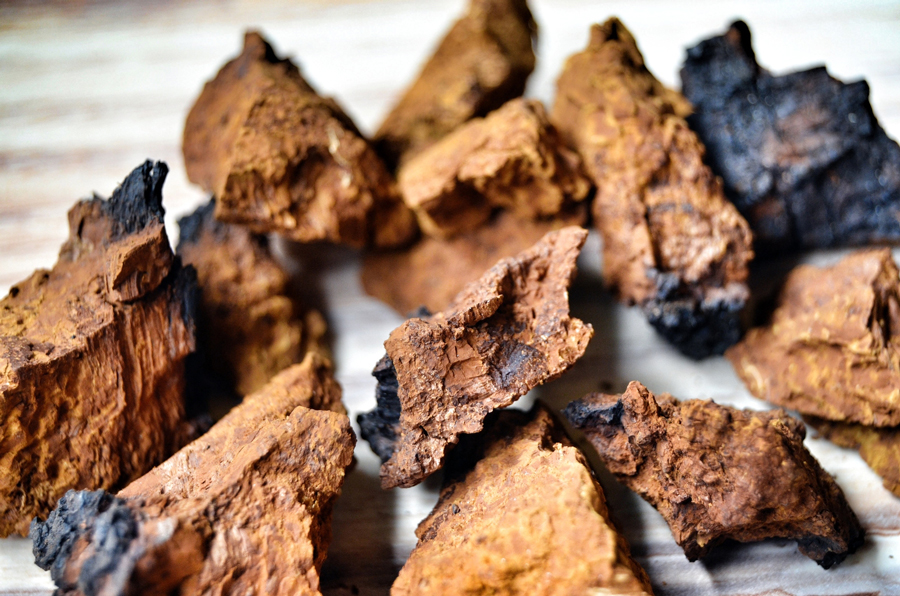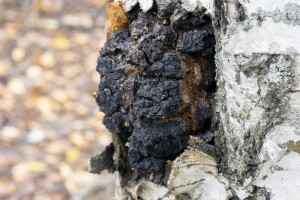
What The Heck is A Chaga Mushroom?
Every week I’m asked about the latest and greatest food with awesome health benefits a celebrity is eating to lose weight or increase their immune health. Often people refer to them as “superfoods”, however as I discuss in my book The Need for Seeds I find the term “superfood” can cause consumer confusion. Generally nutrition experts agree that eating a balanced diet is the best way to get the nutrients your body needs. Ultimately, for a sensible nutrition strategy, long-term health and weight management, it’s the overall quality and quantity of our diets that matter.
I promote focusing on an entire dietary pattern that is best suited for an individual’s needs including their family history, medical conditions, lifestyle and activity choices. It is not a good idea to identify and become too focused on a few virtuous (or villainous) ingredients or foods in your diet. An overall lifestyle approach to healthy eating is important, however some foods have been found to provide certain nutrient boosts targeted at bone, brain, digestive, heart, immune and skin health. Let’s discover what the heck is a chaga mushroom and its the potential health benefits in this Grow with Nutrition post.
 What is the Chaga Mushroom?
What is the Chaga Mushroom?
The chaga mushroom (nonotus obliquus) is a black-brown parasitic fungus that grows on mature birch trees (1). It is a member of the Hymenochaetaceae family of fungus and is often referred to as the “king of medicinal mushrooms”. It has a cork like texture and has almost no taste or smell. Chaga is found primarily in colder climate areas and is harvested with chisel and saw in order to separate it from the trees. Chaga is commonly prepared by soaking it in hot water to produce a tea to enjoy its health benefits.
Health Benefits of Chaga
The chaga mushroom is often thought of as a medicinal mushroom, as it contains a variety of properties that can help improve health. It contains many polyphenols and other compounds that have health promoting characteristics.
Anti-Inflammatory and Digestive Health
The chaga mushroom has anti-inflammatory properties and animal research suggest this may be helpful in the treatment of inflammatory bowel diseases including Crohn’s disease, and ulcerative colitis (2,3). Studies completed with mice identify the inflammation that occurs in both Crohn’s disease and ulcerative colitis was reduced when the mice were given doses of the aqueous extract of chaga (2,3). This indicates that the consumption of chaga may decrease the intestinal damage that occurs in inflammatory bowel disease patients, which could delay or prevent future required surgeries to remove sections of damaged intestinal tissue. However, further clinical trials with humans are necessary to conclude these findings.
Immune Health
The chaga mushroom has been a treatment for cancer and other various diseases since the 16th century in Russia. Recent research suggests chaga has the potential of inhibiting tumor growth in bowel cancer. It is believed a compound called ergosterol peroxide found in the chaga mushroom regulates the beta-catenin (found in the tumors) in colorectal cancer (4,5). This was demonstrated in a study that cultured colorectal cancer cells and introduced ergosterol peroxide from the chaga mushroom to the culture (5). It was then observed that the ergosterol peroxide inhibited the proliferation of colorectal cancer cells (5).
Other animal research has demonstrated that the chaga mushroom can help treat diabetes in mice, however there are no human studies documenting the effect on diabetes in human. The animal study identified chaga’s polysaccharides had positive effects on the pancreas delaying and/or reversing damage that can lead to diabetes mellitus (6). Also, there was a significant reduction in blood glucose levels, and a reduction in insulin levels and free fatty acid levels in the study mice (6).
 Final Thought
Final Thought
Overall there is emerging scientific literature using animal models that support the health properties of the chaga mushroom, however further research is necessary to understand the essential doses, mechanisms and outcomes in humans. If you want to add chaga to your diet speak to your dietitian or health professional about it. Remember, a balanced dietary pattern as part of a healthy lifestyle is the key to long-term wellness.
References
1) Moss, R. Chaga mushroom and cancer. Townsend Letter. 2015 April; .318:34.
2) Mishra SK, Kang J, Kim D, Oh SH, Kim MK. Orally administered aqueous extract of inonotus obliquus ameliorates acute inflammation in dextran sulfate sodium (DSS)-induced colitis in mice. J. Ethnopharmacol. 2015 Sep; 143(2):524-32.
3) Najafzadeh M, Reynolds DP, Baumgartner A, Jerwood D, Anderson D. Chaga mushroom extract inhibits oxidative dna damage in lymphocytes of patients with inflammatory bowel disease. Biofactors. 2007 Sep; 31:191-200.
4) Ma L, Chen H, Dong P, Lu X. Anti-inflammatory and anticancer activities of extracts and compounds from the mushroom inonotus obliquus. Food Chem. 2013 Feb; 139:503-8.
5) Kang J, Jang J, Mishra SK, Lee H, Nho CW, Shin D et al. Ergosterol peroxide from chaga mushroom (inonotus obliquus) exhibits anti-cancer activity by down-regulation of the β-catenin pathway in colorectal cancer. J. Ethnopharmacol. 2015 Jun; 173:303-12.
6) Xu X, Pang C, Yang C, Zheng Y, Xu H, Lu Z et al. Antihyperglycemic and antilipidperoxidative effects of polysaccharides extracted from medicinal mushroom chaga, inonotus obliquus (pers.: fr.) pilát (aphyllophoromycetideae) on alloxan-diabetes mice. International Journal of Medicinal Mushrooms. 2010; 12(3):234-44.
Copyright © 2016 Jane Dummer | All Rights Reserved
